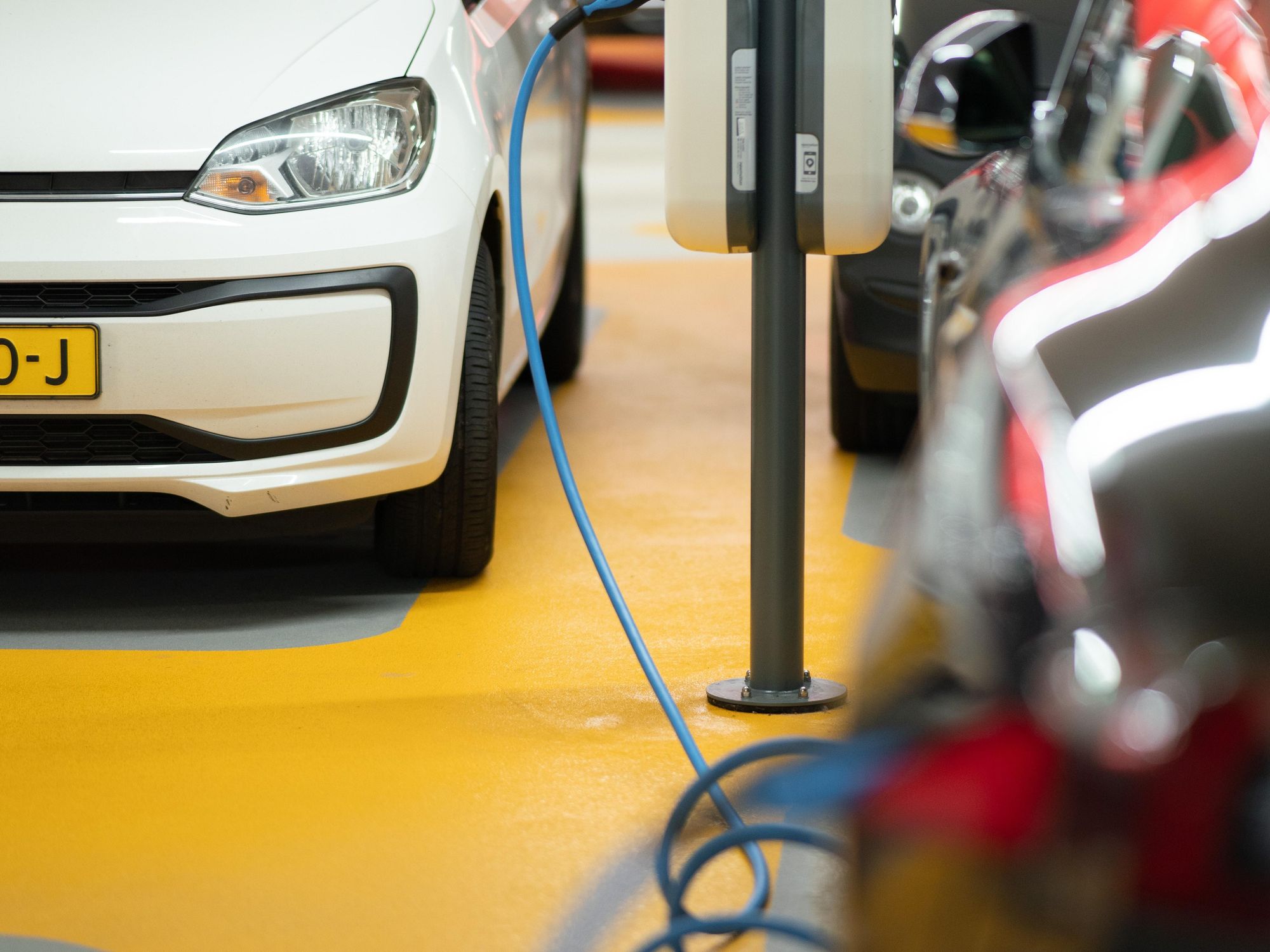EV Charging Company Qmerit Lists the Two Biggest Hurdles Still Facing the Industry
David Shultz reports on clean technology and electric vehicles, among other industries, for dot.LA. His writing has appeared in The Atlantic, Outside, Nautilus and many other publications.

As the Senior Vice President of Qmerit, an EV charging company, it’s hardly surprising that Ken Sapp was an early adopter of electric vehicles. But when he first made the switch to the new tech he intentionally didn’t install a charger at his house. For several months Sapp went without the very service his company, Qmerit, provides to customers all over the US and Canada.
Why? Sapp wanted to experience just how much value a home charger would add. As with so many other EV owners, he found the difference to be immense. “Your anxiety goes down, your satisfaction goes up, you tell your friends about it, because you just wake up full every day,” says Sapp. “You worry less about public infrastructure.” Having a level 2 charger at home, Sapp says, is “a game changer.”
Level 2 charging, which runs off a 240V power supply, typically adds between 20 and 80 miles of range per hour of charging. While significantly less powerful than DC fast charging (level 3), the lower voltages and reduced need for new grid infrastructure means level 2 chargers can be installed in more places. They’re often found outside business like gyms or restaurants, and as Sapp will tell you, they’re ideal for home charging.
Unlike other charging companies like Electrify America, EVGo, Chargepoint, or Blink, Qmerit doesn’t build or sell the chargers themselves. Instead, the company has built a massive network of certified electrical contractors that it leverages to design, install, and maintain charger installations from various brands. Qmerit employs electricians in key early-adopter markets and acts as the bridge between the skilled labor and the property owners that need it. Clients can then access Qmerit’s platform and rolodex of knowledgeable electricians. In return, they receive a turnkey charging solution customized to their needs and their property.
Customer reviews of the service are mixed. Many users report excellent experiences working with Qmerit and their electricians, especially in cases where the installation is non-standard or otherwise complex. But on reddit’s r/boltEV forum, plenty of Chevy Bolt owners complain that Qmerit’s estimates and prices are often hundreds of dollars more than quotes from other local electricians.
In contrast to much of the EV industry, Qmerit has actually been around in some capacity for decades. The basic idea for the company–a database of skilled tradespeople with performance metrics–was created by CEO Tracy K. Price in the mid-90s under the name FieldCentrix Inc. That company has changed shape several times over the next two decades, including being acquired by (and salvaged from) Enron. Qmerit, in its modern form, launched in 2016 as an offshoot of ABM Industries when Price recognized that the need for skilled electricians was about to skyrocket as EVs went mainstream. The company has since grown to more than 300 employees and facilitated the installation of more than 260,000 EV chargers across the US and Canada, with plans to expand to Europe as well.
Essentially the middleman of the electrification wheel, Qmerit works with landlords, homeowners, electricians, charging companies, and automakers to add chargers to the grid. This vantage point gives the company an on-the-ground perspective about the challenges still facing the industry. Sapp says that there’s definitely new momentum in the sector, especially for 2023, with nearly every automaker announcing EVs and committing to phasing out internal combustion engines over time. The biggest two obstacles facing this transition, he says, are supply chain and lack of skilled electricians.
It’s no secret that the COVID-19 pandemic wreaked havoc on the world’s supply chains, and while those woes seem to be easing gradually, the EV market is still supply constrained (despite Tesla lowering prices). The shortage of skilled labor in the United States has also been well publicized, but to that end, Qmerit has built out its own workforce development team that helps electricians find apprentices and expand the pool of skilled laborers. “I would encourage many people to take a look. It's a great time to be in electrical trade services, and it’s going to get better and better,” says Sapp. “A craftsperson, with great customer skills, and the ability to get [work] done will be in demand for a long, long time.”
Sapp says Qmerit’s current financial situation is “very, very strong” thanks to recent investments, especially by Schneider Electric, a French Multinational company that specializes in automation and energy management.
- Why Government Incentives for Used EVs Make No Sense ›
- Does California's New EV 'Transparency' Law Give Companies a Loophole? ›
- How Many Chargers Are Needed To Usher In the Electric Vehicle Revolution? ›
- LA's EVgo Will Work with GM on Its Nationwide Electric Vehicle Charging Network ›
David Shultz reports on clean technology and electric vehicles, among other industries, for dot.LA. His writing has appeared in The Atlantic, Outside, Nautilus and many other publications.





 Image Source: Skyryse
Image Source: Skyryse